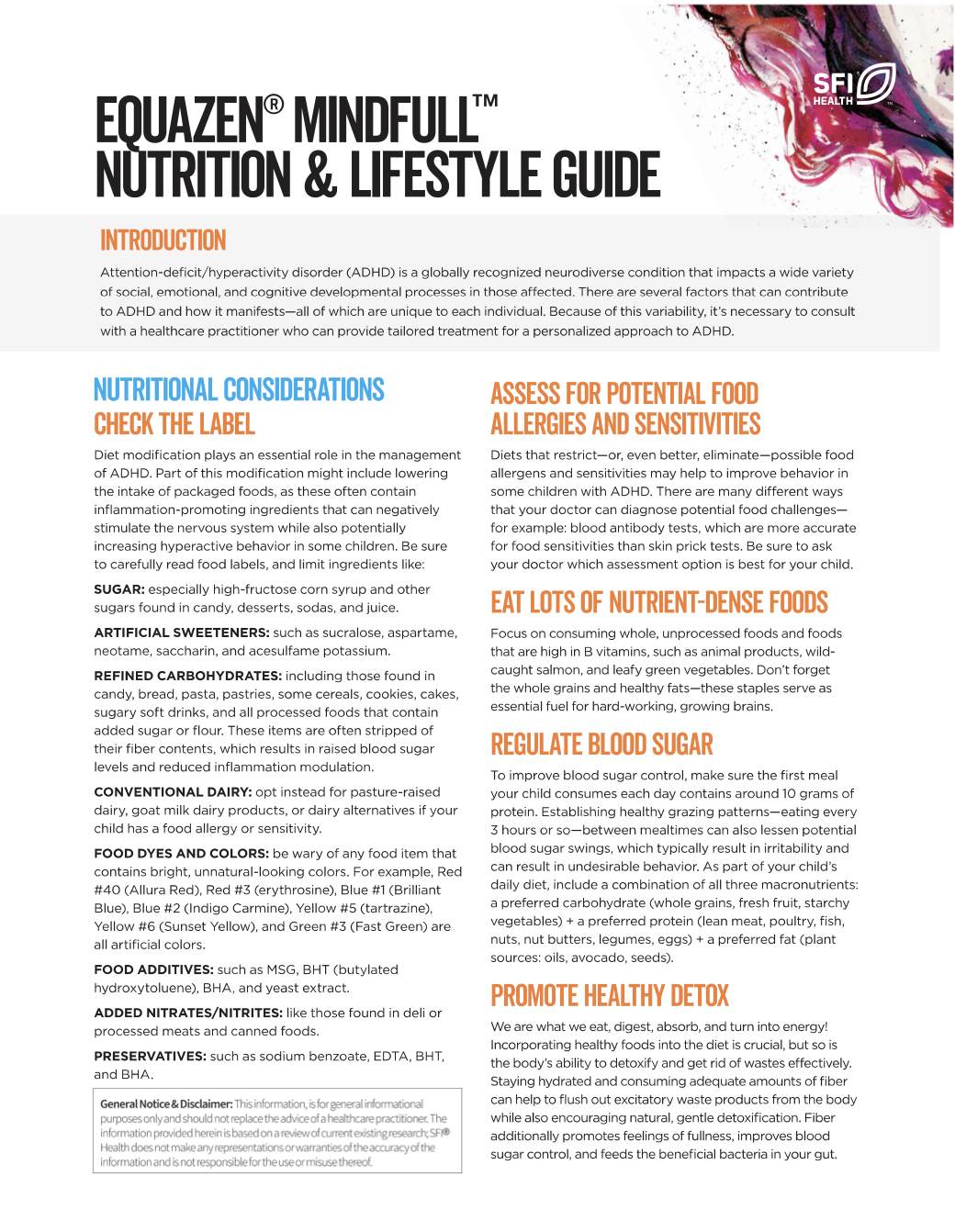ADD/ADHD
Attention Issues in Children Linked to Common OTC Pain Reliever
Acetaminophen, sold over-the-counter as Tylenol and other brand names, is generally regarded as a safe and effective pain reliever when used as directed. But a growing body of evidence is calling into question its use during pregnancy. Studies have linked the use of the drug by expectant mothers to poorerRead
8-day Menu for Neurodiverse Kids
One of the biggest daily challenges for parents of children with ADHD or other neurodiverse conditions is planning healthy meals and snacks. Often the focus is on dietary restrictions, and the list of foods to avoid feels overwhelming. Instead, Tricia Griffin, RDN, LD recommends shifting the focus. “As a nutritionistRead
Free Nutrition Resource: Practical Tips for Healthier Kids Meals
A new school year is fast approaching, and you’re probably talking to parents and caregivers about how to help their child have a successful school year. As you know, a nutritious diet plays a vital role. Providing nourishing foods for lunch and snacks gives children an edge — mentally, socially,Read
Nutritional Strategies for Children With ADHD: CME/CE
In a crosstalk-panel discussion, 3 multidisciplinary experts in the management of children/adolescents with ADHD present new findings on ADHD, including genetic variants of the condition and the resultant influence of disease course and treatment. This panel also discusses the most recent data on the safety and efficacy of long-chainRead
Nutrients That Support Neurodiverse Minds
All children need a wide range of nutrients to help them grow and develop. Ideally, these should come from a well-balanced diet. However, children with ADHD and other neurodiverse conditions often have gaps in their diet or increased nutrient needs. These children may benefit from nutritional supplements or certain medicalRead
Brain Food: How to Optimize Nutrition for Neurodiverse Children
Supporting the behavioral, emotional, and physical demands of children on the neurodiverse spectrum requires a multifaceted approach which can sometimes feel overwhelming for parents or caregivers. One easy and impactful place to start is with their daily nutrition. Helping children make healthy choices throughout the day goes a long wayRead
Picky Eaters vs. Sensory Eaters in Neurodiverse Children
Most young children go through food jags — periods of picky eating where they will only eat one food or a small selection of foods for days or weeks at a time. This is a normal and usually short-lived behavior in children as they learn to exert their independence. PickyRead
ADHD and Genetics: What’s the Connection?
ADHD often runs in families. But what are the genetic mechanisms that may support this connection? ADHD and neurodiverse conditions are related to multiple genetic variants or single nucleotide polymorphisms (SNPs).1,2 One SNP receiving attention affects the fatty acid desaturase 2 (FADS-2) gene. This gene helps to maintain healthy levelsRead
The Importance Gamma-Linolenic Acid (GLA) in ADHD- The Good Omega-6
Nearly 60% of the adult brain is composed of lipids, of which approximately 35% are polyunsaturated fatty acids (PUFAs). Omega-3 and omega-6 fats are both PUFAs. They contain more than one double bond in their backbone, making them flexible and fluid. PUFAs are essential building blocks of the membrane phospholipidsRead
Mindful Nutrition and Lifestyle Guide: ADHD
Attention-deficit/hyperactivity disorder (ADHD) is a globally recognized neurodiverse condition that impact a wide variety of social, emotional, and cognitive developmental processes in those affected. There are several factors that can contribute to ADHD and how it manifests — all of which are unique to each individual. Because of this variability,Read














